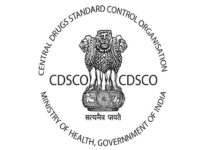An early-stage clinical trial assessing an investigational vaccine to stave off Nipah virus infection has been started by the National Institute of Allergy and Infectious Diseases (NIAID), a division of the National Institutes of Health. Produced by Moderna, Inc. in Cambridge, Massachusetts, the experimental vaccine was developed in collaboration with the NIAID’s Vaccine Research Center. It is centred around a messenger RNA (mRNA) platform, a technology that is present in a number of licenced COVID-19 vaccines. The Phase 1 clinical trial, which is being carried out at the NIH Clinical Center in Bethesda, Maryland, is being funded by NIAID.
The Nipah virus infection is a zoonotic disease, which means that it can pass from animal to human. The fruit bat serves as the ideal host for the virus. There were 265 human cases and 105 fatalities as a result of the first recorded Nipah outbreak, which struck Malaysia and Singapore in 1998. The outbreak also significantly harmed the local swine sector economically. Annual outbreaks have been happening in Asia since 1999, mostly in Bangladesh and India. The virus can quickly develop from signs of a respiratory infection to encephalitis (brain swelling), which can result in a coma or death. According to estimates, between 40 and 75% of Nipah virus victims pass away. Although person-to-person transmission is rare, the majority of cases are spread by animals. There is currently no approved vaccination or treatment for Nipah virus infection.
According to NIAID Director Anthony S. Fauci, M.D., Nipah virus poses a significant pandemic threat because it mutates very swiftly, causes disease in a wide range of mammals, can be transferred from person to person, and kills a substantial proportion of the people it infects. A preventive Nipah virus vaccination is urgently needed.
The Pandemic Preparedness Plan from the NIAID, which was released earlier this year, built a system for studying viruses with pandemic potential and gave prototype pathogens like the Nipah virus top priority in research. This is the first clinical experiment using the prototype pathogen method since it was published.
In 40 healthy people between the ages of 18 and 60, the investigational mRNA-1215 Nipah virus vaccine will be put to the test in a drug concentration clinical trial to determine its safety, acceptability, and capacity to elicit an immunological response. In particular, the investigational vaccine will be administered in two doses by injection into the shoulder muscle, four or 12 weeks apart, to 4 groups of 10 people each. Group 1 (10 participants) shall receive two injections of 25 micrograms (mcg). Group 2 will receive two injections of 50 mcg, and Group 3 will get two injections of 100 mcg, all administered four weeks apart. An interim review of the outcomes from the three prior groups will be used to establish the vaccination dose for the fourth group of participants. Two injections will be given to the fourth group, separated by 12 weeks. Participants in the study will be assessed during the course of the investigation through clinical assessment and blood sampling, and they will be monitored by clinical study staff for 52 weeks after receiving their final immunisation.


















